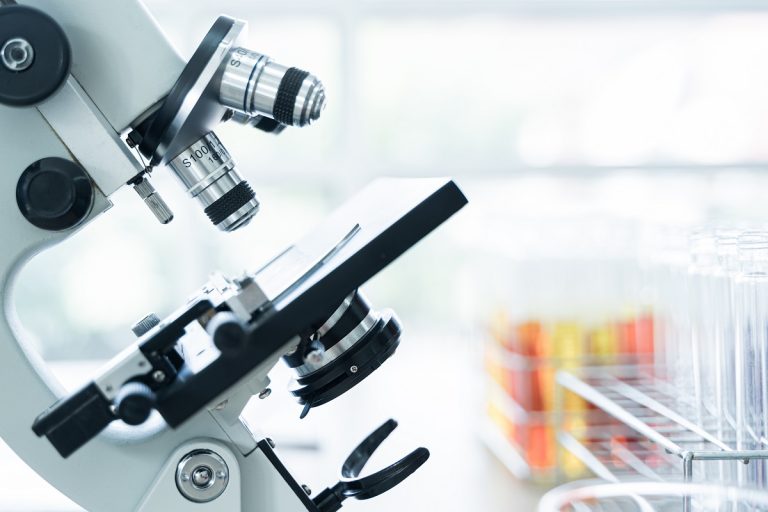Last week, representatives from eight research institutions met in Brno at the Masaryk Memorial Cancer Institute to ceremonially launch the SALVAGE project, which aims to enhance cancer prevention. The project started at the beginning of this year and will continue until mid-2028 with a budget of CZK 488 million.
Along with Brno’s Masaryk Cancer Institute and Masaryk University, other partner universities and institutions include Motol University Hospital in Prague, Olomouc University Hospital, Charles University Faculty of Medicine in Plzeň, Ostrava University, Palacký University in Olomouc, and Pardubice University.
Malignant tumours are the second most common cause of death in the Czech Republic, as well as in the EU, and it’s estimated that almost half of these deaths can be avoided through prevention.
With the full title “Saving lives through research in the early detection and prevention of cancer: Molecular, genomic and social factors”, the SALVAGE project, divided into three distinct research projects, addresses the main challenges in research in the field of primary, secondary and tertiary oncological prevention.
SALVAGE will contribute to the fulfilment of the main goals of the European Plan to Fight Cancer, the EU Cancer Mission and the Czech Framework of Health Research 2030, bringing results applicable in clinical practice, strengthening international cooperation, and reducing the research deficit in this area.
“The SALVAGE project has three research plans, in which we deal with the causes of precancerous conditions and tumours and the possibilities of influencing them, at the level of cells, individuals and entire populations. We are connecting laboratories with clinical practice and excellent scientific teams across the Czech Republic,” said Prof. Marek Svoboda, director of the Masaryk Institute of Oncology and principal investigator of the SALVAGE project.
“The international reach is also important, and that is shown by the fact that the ceremonial opening of the project drew the attention of the International Agency for Research on Cancer (IARC), based in Lyon, whose representative Dr Jiří Zavadil was invited to give a lecture at the opening,” added Svoboda.
The first of these research projects is led by the Institute of Molecular and Translational Medicine at the Faculty of Medicine of Palacký University (ÚMTM UPOL).
“Our research provides insight into the molecular basis of precancerous and early cancerous lesions and tumour-host interactions. These processes are essential for understanding the process of malignant transformation, which is important for improving the prevention, detection and treatment of cancer,” explained Dr. Zdeněk Škrott, junior researcher leading the research project.
It aims to investigate the role of genomic integrity, proteotoxic stress responses and cellular senescence in the early tumour stages and to explore molecular diversity in precancerous and cancerous lesions and stromal cells. Genomic, epigenetic and proteomic analysis is planned to identify new markers and improve diagnostic and treatment approaches.
After that, further research will focus on investigating tumour-host interactions, the importance of the tumour microenvironment and immune surveillance.
The second SALVAGE project focuses instead on data analysis, regarding the trends in the occurrence of risk factors among the Czech population, and the incidence, mortality and cumulation of different types of cancer and precancerous conditions.
“The goal of the second SALVAGE research project is to update and extend existing information and to conduct new analyses of national, regional and cohort-specific data on cancer incidence, mortality and survival to explore temporal changes, geographic differences and social inequalities in cancer risks, ” outlined Dr Martin Bobák, head of the RECETOX environmental health research program, part of the Faculty of Science of Masaryk University.
Part of the plan – which uses a wide range of existing and newly acquired datasets and their interconnection – is the analysis of the connection between traditional and new risk factors and biomarkers with selected main types of tumours and the estimation of the proportion of cases that can be attributed to these risk factors. The role of the human exposome (factors of the external environment and internal exposure to chemicals) and the microbiome in the risk of cancer will also be investigated.
The causes of differences in the use of screening in the population will be investigated, for example, according to geographic location, age, and socioeconomic and psychosocial factors, and trends and determinants of changes in the survival of the main types of tumours will be assessed, especially in relation to metastatic tumours, cancer prognosis and ways of caring for cancer patients.
The third and last SALVAGE research project finally aims at early detection of precancerous conditions and early tumours, their prevention and therapy. The research team is led by Marián Hajdúch from ÚMTM UPOL, in cooperation with members of other institutions.
The prevention part includes non-intrusive diagnosis through bodily fluids, and the identification of risk factors for the development of secondary tumours in patients, as well as a personalised clinical approach, while therapeutic interventions are based on the use of some already existing drugs for the aim of chemoprevention, and the development of other innovative therapies.
“Current activities include the preparation or launch of several clinical trials on biobanking and early detection of tumours,” said Hajdúch. “For example by detecting the presence of the HPV virus in the oral cavity, which causes tumours in the oral cavity and throat, as well as a validation clinical trial on biomarkers for the early detection of lung tumours from exhaled air, and a cohort preventive study on individuals at high risk of cancer, who are recruited from patients cured of childhood cancer or from families with a proven hereditary risk of developing tumours.”








